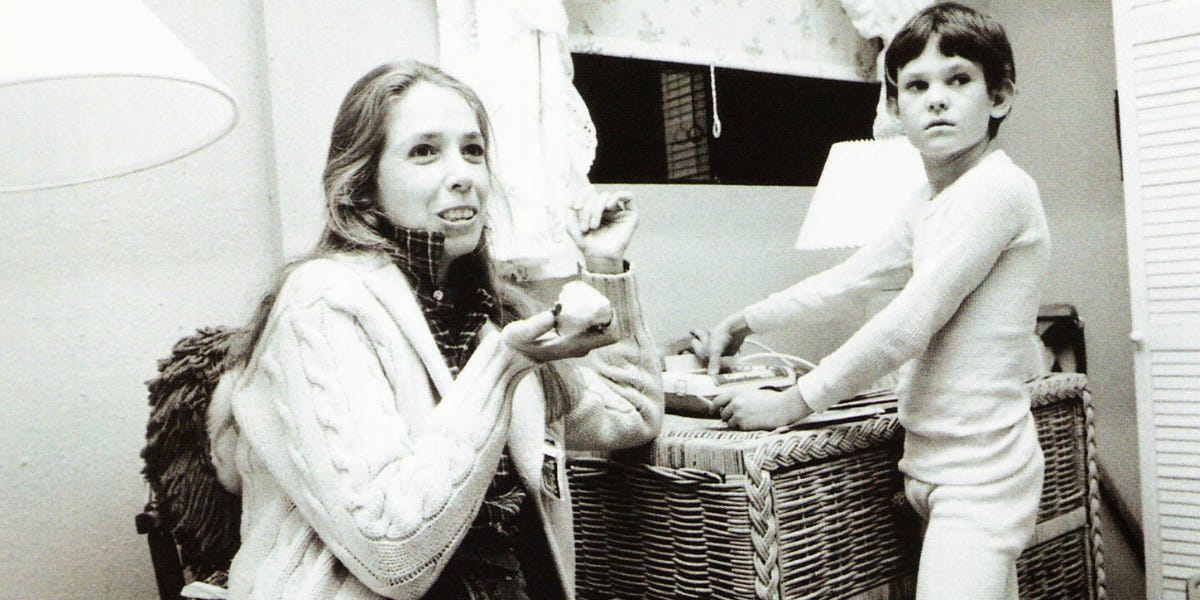TMS Muse of the Week: Melissa Mathison
(via pinterest.com)
When you hear the title E.T.: the Extra-Terrestrial (1982), naturally you think of the film’s director, Steven Spielberg. It’s one of his most successful features, critically and financially; his favorite of his own movies before Schindler’s List (1993); and one of his films he personally resonates with. Beyond all this, a lot of people forget that while E.T. was very much Spielberg’s brainchild, the legend has always been more of a screen director than a writer, and very rarely participates in the official screenplays of his projects. The person who received the Oscar nomination for writing E.T. was Melissa Mathison. Brought up within Los Angeles throughout the 1950s and 1960s, Melissa actually babysat for the Coppola family, who lived in the same neighborhood as the Mathisons. The head of the clan, filmmaker Francis Ford Coppola, encouraged the brunette to continue writing into adulthood when he caught on that she had a knack for the craft. Melissa had a couple of on-set gigs working for FFC on both The Godfather Part II (1974) and Apocalypse Now (1979) in her mid-20s, but it wouldn’t be until Carroll Ballard’s The Black Stallion (1979) when she would make her debut penning a Hollywood script.
The hit family film caught the eye of Spielberg, who was gearing up to make his first, legitimate family friendly feature. Melissa and Steven were already somewhat familiar with each other through actor Harrison Ford, the star of Steven’s Indiana Jones movies (1981-2008), and Melissa’s boyfriend at the time, soon to be husband from 1983 to 2004. What’s always been ironic to me is how E.T. is focused on a divorced family, with a single mother raising three children. At the period of production, Harrison and Melissa’s relationship was getting serious, so she was spending time with the former’s kids from his first marriage. The conversations with his sons helped influence the dialogue of Elliott and his siblings, plus older brother Michael’s friends. During the film we casually hear Elliott’s dad is on vacation with his new girlfriend instead of near his kids. It’s very interesting how Melissa wrote Dee Wallace’s Mary as the ex-wife who has to juggle being a mother while also working, instead of having her as the protagonist’s new stepmom. Of course, there’s a big chance this decision was motivated by Spielberg too, since absent fathers are often a theme in his films. But it’s noticeable all the same.
(Corbis / Paramount Pictures)
E.T. is regularly noted for its realistic vernacular and conversations between children and teenagers, so it’s no surprise the inspiration came from Melissa’s real stepkids. And in case you’re wondering, Melissa didn’t come up with the term ‘penis breath.’ She actually overheard it used by two pre-teen boys while standing in a grocery line, hilariously enough. Following the phenomenon of E.T., the screenwriter and the director reunited a year later on Steven’s segment of The Twilight Zone (1983) [though the former under the pseudonym of ‘Josh Rogan’] and for a third time with The BFG (2016); which would also become Melissa’s final film before passing from cancer in the middle of production. During the 1990s, she provided the scripts for Mike Robe’s Son of the Morning Star (1991), Frank Oz’s The Indian in the Cupboard (1995), and Martin Scorsese’s Kundun (1997); and a decade later participated in the English language translation for Hayao Miyazaki’s Ponyo (2008). Working on Kundun incidentally made her interested in Buddhism and Tibetan activism for the rest of her life. In between their careers, she and Harrison raised their son, Malcolm (b. 1987), and daughter, Georgia (b. 1990).
Melissa is one of those legends who is primarily associated with one full blown classic, but what a classic to be a part of. Both then Ford spouses actually filmed cameos as Elliott’s school nurse and principal, but neither scene made it into the official edit. How she felt about the backstory of the characters in E.T. almost mirroring her own marriage we may not know. But we do know that she made a big impact on the film industry, whether it was her preference for minimal expository dialogue or taking children seriously as characters. There is just as much brilliance and seriousness with family pictures, and Melissa helped Steven prove that.





This is an excellent piece. Thank you.
Thanks for this. ❤️